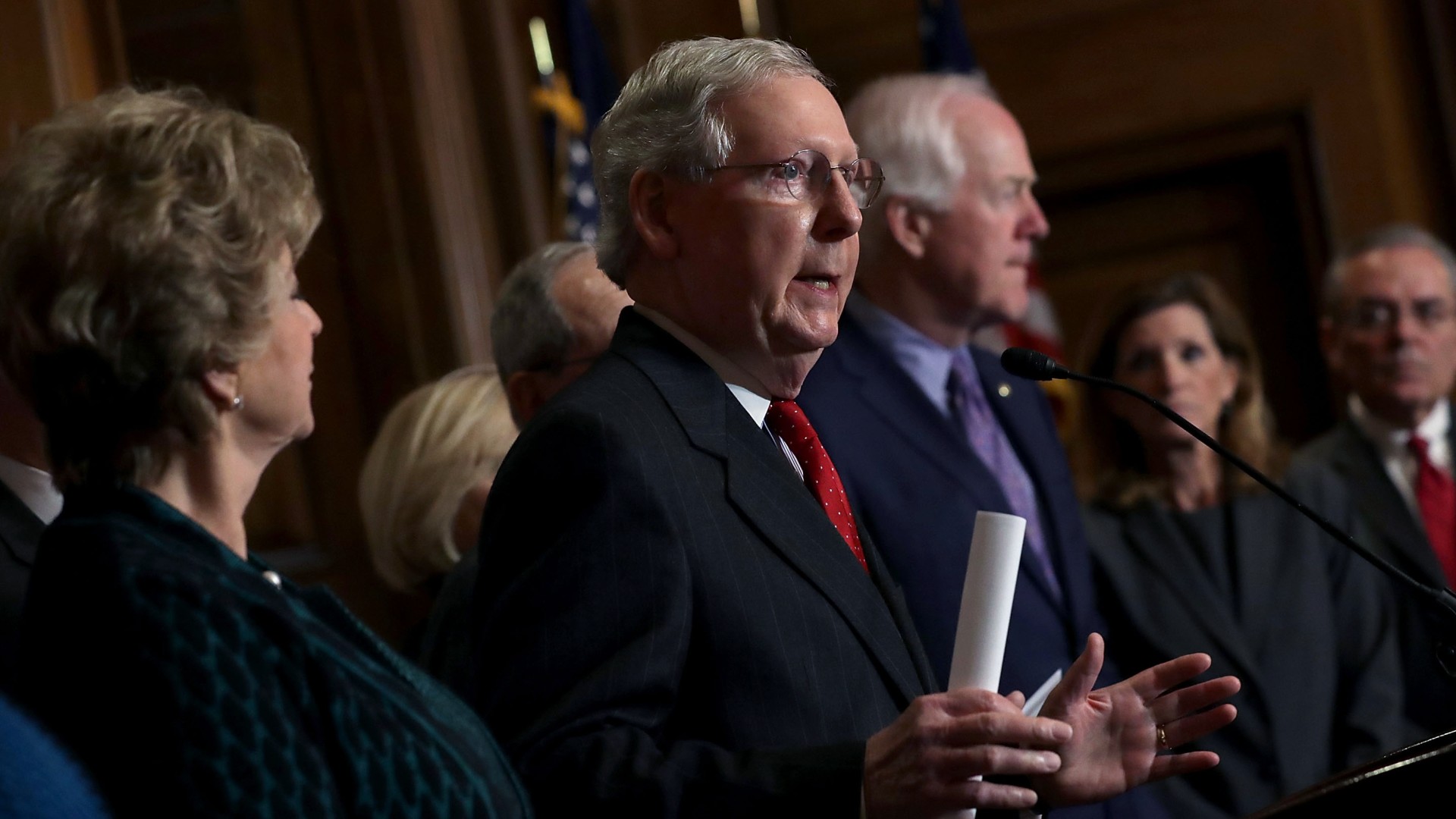Images via Pixabay and Wikimedia Commons
As Republican Congressional leaders in Washington made clear they had the votes to pass an overhaul of the tax code that would benefit the most fortunate, the the S&P 500, Dow and Nasdaq all touched all-time peaks on Wall Street.It’s a sign of dysfunction that the fate of the world economy is partly predicated on the passage of a shoddy tax bill. A day before the record highs, the S & P had its worst day in a month after U.S. Sen Marco Rubio, R-Fl., wavered on his support for the tax plan.“We’ll have to see if [Republican] leaders can manage to accommodate their desires, which is essential if the bill is to be passed in the Senate, where Republicans presently have only a two-seat majority, which will fall to a one-seat majority once Alabama’s Doug Jones joins in early January,” analysts at Action Economics told the Financial Times.Through modest measures and soaring rhetoric, Rubio has manage to hoodwink many, including a reporter at the New York Times who recently described the senator as a “longtime champion of the working class.” This description doesn’t square with a man who opposes a minimum wage increase, called for the repeal of the Dodd-Frank Act and has raked in millions from Wall Street. A loyalist to his donors, Rubio’s opposition to the tax bill was short-lived. With his vote secured, markets proceeded to soar.
Check out more videos from VICE:
It’s not just Republicans in the big, likely fancy, pockets of Wall Street interests. Finance interests have also plied Democrats with hefty campaign donations. Some argue that former President Barack Obama’s deep financial ties to Wall Street interests curbed his reaction to the financial crisis. Indeed, while Democrats managed to pass sweeping financial regulatory reforms, banks were not fundamentally fixed so as to prevent another recession. The same dangerous practices that led to the 2008 crisis -- like credit default swaps -- are now being tweaked and reimplemented by big banks, like Wells Fargo. Bonuses are on the rise, and the market is hitting record highs."Consider the significant reform enactments dating from the Great Depression, such as the Securities Act of 1933, the Federal Deposit Insurance Act, and the Glass-Steagall Act,” Lee wrote. “The basic construct of these enactments remain in place with the exception of certain parts of the Glass-Steagall Act, which were repealed only in 1999, 66 years after their initial enactment.”Similarly, economists have warned that the tax bill will further exacerbate a historically high income gap.
Advertisement
This symbiotic relationship -- where the well-heeled on Wall Street flood the political system with cash in exchange for pro-corporate policies -- has infected far too many folks on Capitol Hill.In a recent slip of the tongue, Sen. Lindsay Graham, R-S.C., copped to the quid-pro-quo relationship his party has with the wealthy, telling reporters that the “financial contributions will stop” if Republicans couldn’t pass this tax bill. (Graham has taken in more than $1.2 million in campaign donations from bankers and finance folks over the course of his career.)Economists have warned that the tax bill will further exacerbate a historically high income gap.
Advertisement
Check out more videos from VICE:

It’s not just Republicans in the big, likely fancy, pockets of Wall Street interests. Finance interests have also plied Democrats with hefty campaign donations. Some argue that former President Barack Obama’s deep financial ties to Wall Street interests curbed his reaction to the financial crisis. Indeed, while Democrats managed to pass sweeping financial regulatory reforms, banks were not fundamentally fixed so as to prevent another recession. The same dangerous practices that led to the 2008 crisis -- like credit default swaps -- are now being tweaked and reimplemented by big banks, like Wells Fargo. Bonuses are on the rise, and the market is hitting record highs.
So while Democrats pushed regulations weakened by Wall Street influences while in power, Republicans are actively reversing the modest checks put on the industry. And while the Affordable Care Act implemented new taxes on corporations -- including 3.8 percent surtax on investment income --the Republican tax bill on the verge of passage would slash rates on the wealthiest.This symbiotic relationship -- where the well-heeled on Wall Street flood the political system with cash in exchange for pro-corporate policies -- has infected far too many folks on Capitol Hill.
This is setting up a scenario for crisis, despite the rosy projections coming out of lower Manhattan.Paul Lee, a regulation lawyer and faculty member at Columbia Law School, recently pointed out how unprecedented it is for government to so quickly reward and deregulate an industry that brought the country to its knees just a decade ago.
Advertisement
“The bill is investing heavily in the wealthy and their children — by boosting the value of their stock portfolios, creating new loopholes for them to avoid tax on their labor income, and cutting taxes on massive inheritances,” Lily Batchelder, an economist under President Barack Obama, told Vox. “At the same time, it leaves low- and middle-income workers with even fewer resources to invest in their children, and increases the number of Americans without health insurance.”Wall Street likely won’t see its influence wane anytime soon. Big shots will continue to fill campaign coffers, and hold fancy fundraisers. They will continue to pay dozens of lobbyists. They will continue to see their former colleagues enter the federal government, whether it’s CitiGroup alum Jack Lew working as Treasury Secretary under Obama or Goldman Sachs golden boy Gary Cohn working as Trump’s top economic policy adviser.One way is to demand elected officials institute even more meaty financial dergulatory policies over the biggest banks. In a piece for the Harvard Business Review, Gautam Makunda lays out a series of common sense policy proposals, from new taxes to limits on the size of banks. Makunda argues that financial reforms are the best way to curb Wall Street’s political sway “because the financial sector’s power and prestige are products of its extraordinary size and profitability … we need reforms that reduce those to healthy levels without inhibiting the sector’s critical functions.”
The members of Congress who received the most money from Wall Street in recent months is regularly aggregated by the Center for Responsive Politics. If you see your member of Congress on the list, check into their history on financial regulation. If you aren’t impressed, give their office a ring.Regardless of where you fall on the political spectrum, reach out to your elected officials and tell them how you feel. Legislation doesn't move itself and this is an issue you're concerned about, lawmakers from the local to national level need to hear from you.
